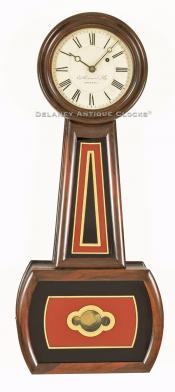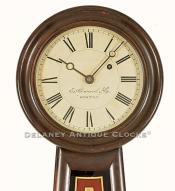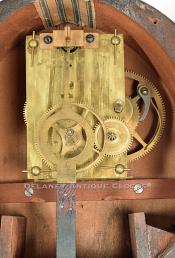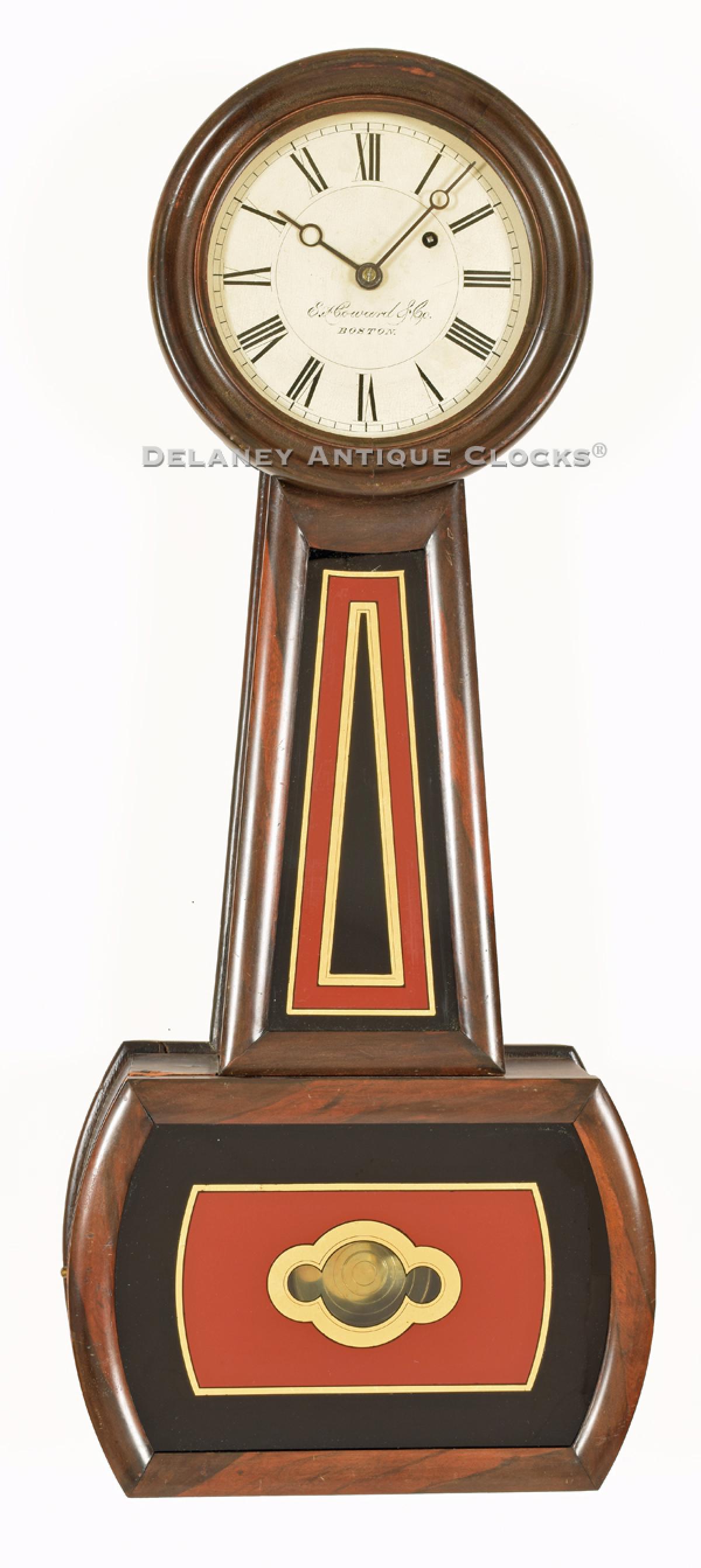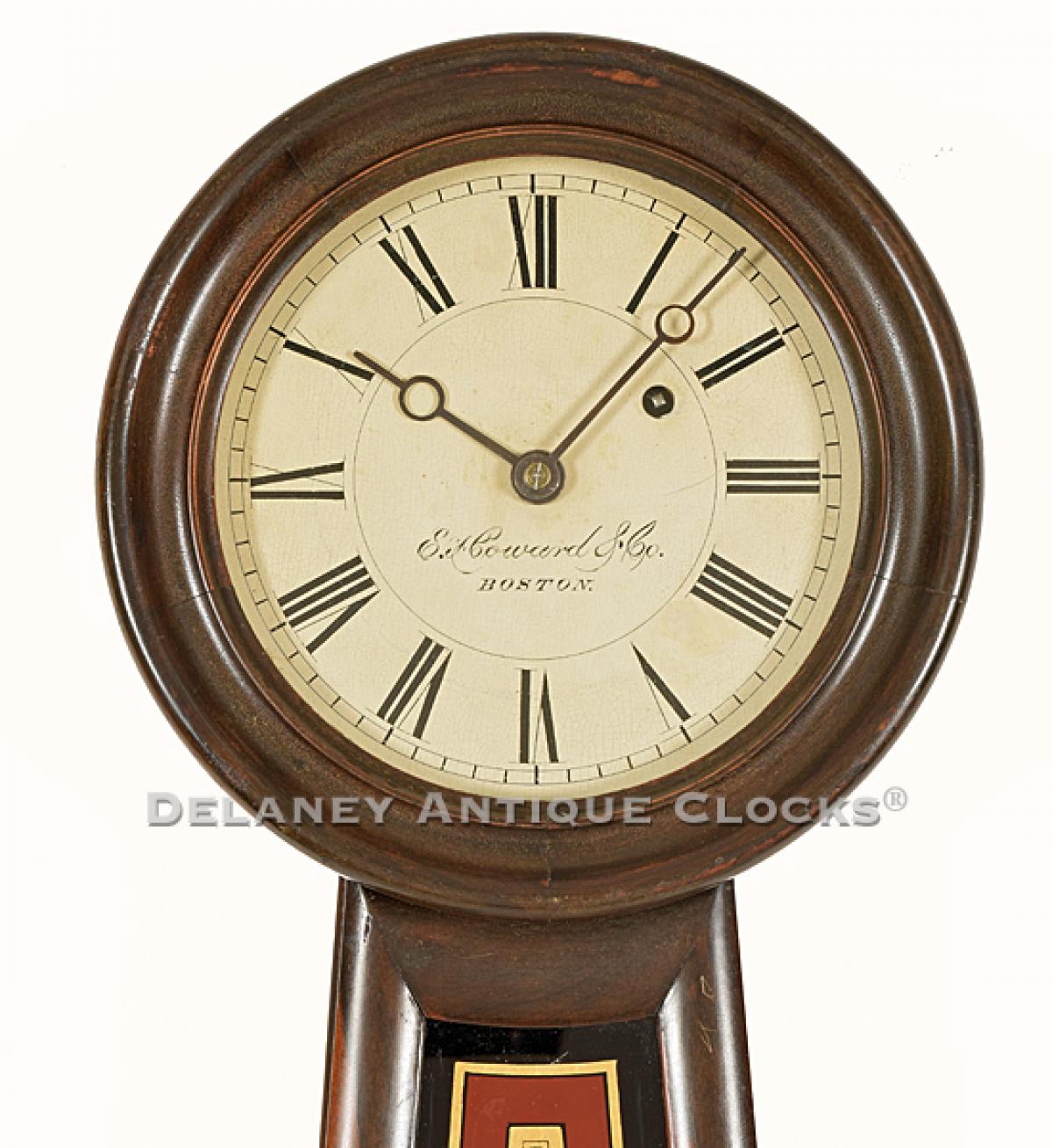E. Howard & Co. Model No. 5. Boston, Massachusetts. A wall timepiece. 218042.
Howard offered five sizes of this very popular Banjo form. This example is the smallest of the five, measuring 29 inches long, and is the most commonly found. For comparison, the largest size is cataloged as the Model Number 1. Its case measures 50 inches in length.
The Number 5 size has very pleasing proportions measuring approximately 29 inches long. The case is constructed in cherry and retains its original grained-painted decoration. This decoration is in outstanding condition. (Howard banjo clock cases were originally grained with India ink. This was done to simulate the rich look of the grain found in rosewood.) The frames are fitted with reverse-painted tablets or glasses. The glasses have been professionally repainted. They feature the traditional E. Howard color combination of black, gold, and red are original to this example. The wooden dial bezel is fitted with glass and protects the dial and hands.
The painted iron dial measures seven inches in diameter. It is wonderfully signed in a script format. Open moon hands display the time.
The movement is made of brass and is of excellent quality. It is weight-driven and has a recoil escapement. It is a very accurate timekeeper for its small size. Both plates retain their original scraping design. The front plate is die-stamped, “E. Howard & Company / Boston.” The original weight is cast iron. The brass bob features a ring-turned design. This bob is supported by the original wooden rod. The Maker's original setup label is in the case, pasted onto the bottom board.
This clock was made circa 1870 and is an outstanding early example.
Inventory number 218042.
The E. Howard & Company succeeded the Howard & Davis firm in 1857. The Howard & Davis firm was comprised of Edward Howard and David Porter Davis and was established in 1842 in Roxbury, Massachusetts. Both men had just completed their clock apprenticeship under the guidance of Aaron Willard Jr in Boston. The Howard & Davis firm made high-grade clocks, precision balances, sewing machines, fire engines, and watches. After the dissolution of Howard & Davis, Edward Howard became Boston's leading manufacturer of weight-driven residential and commercial clocks. The firm also made a large number of tower clocks and watchman and salve clock systems. These sold well in the last quarter of the 1800s.
It has been said that the E. Howard Clock company never made an inexpensive clock, and everything they made was of very good quality. As a result, Howard clocks have become very collectible and are prized by their owners. Today, the E. Howard name enjoys outstanding name recognition.
For a more in-depth reading of Edward Howard and his various businesses, please read "Willard's Patent Time Pieces," written by Paul Foley.

